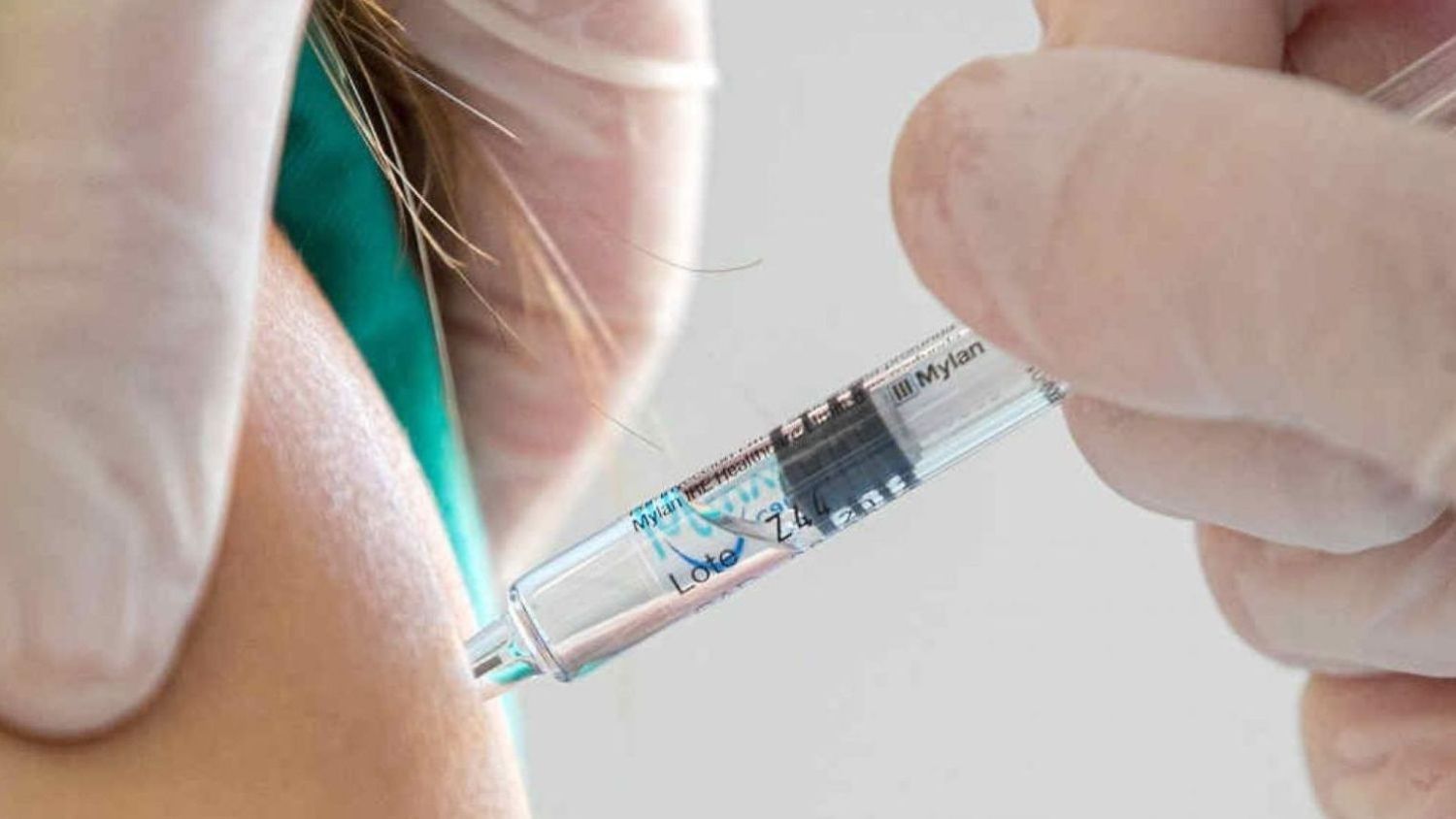Health begins vaccination against flu and COVID-19 on October 14 for the population aged 60 and over and at risk of complications
The Department of Health will begin the joint vaccination campaign against flu and COVID-19 on October 14 and, to this end, it calls on the population aged 60 years or older (more than 185,000 people in Navarra ) and those who have diseases considered high risk (more than 7,500) to be immunized against these respiratory viruses.
The objective of this vaccination, as stated by the Institute of Public and Occupational Health of Navarra (ISPLN) in its latest bulletin, is to reinforce the protection of the most vulnerable people and health and social health personnel to reduce morbidity and mortality and the impact of these diseases. at the healthcare level.
The campaign will continue until November 29, although after that date people who meet the criteria will continue to be vaccinated (new pregnant women, new patients with risk factors, international travelers included in risk groups) or who could not be immunized during the period initially set.
How to request an appointment
The appointment can be requested from October 3 to November 29 through three modalities: preferably, through the Personal Health Folder for people over 60 years of age, by calling the appointment telephone number of your health center or office. from 10:00 a.m. to 3:00 p.m. or in person at your Primary Care center.
This week, the gradual sending of SMS messages to the target population will begin, prioritizing older age groups (people aged 80 and over), so that they can manage their summons. People named in the Personal Health Folder agendas will receive a reminder two days before with the date, time and place of the vaccination.
The campaign for the vaccination of health workers from the Navarrese Health Service-Osasunbidea (SNS-O) will also begin on October 14, upon receipt of SMS to proceed with the request for an appointment at health centers, centralized points in the areas or , if applicable, in the corresponding hospital center.
Who should get vaccinated
The main purpose of this campaign is to reduce morbidity and mortality from influenza and COVID-19 in the population by immunizing the most vulnerable groups of people and those in whom the flu can have a greater impact on their health.
Thus, health authorities recommend joint vaccination to:
- People 60 years or older.
- People aged 5 years or older in disability centers, nursing homes and residents in closed institutions.
- People between 5 and 59 years of age with risk conditions such as, for example, diabetes mellitus and Cushing’s syndrome, morbid obesity, chronic cardiovascular, neurological, respiratory, renal diseases, coagulation disorders, immunosuppression or cancer and diseases that lead to cognitive dysfunction ( Down syndrome, dementia…), among other risk pathologies.
- Pregnant women in any trimester of pregnancy and up to 6 months after delivery (if they were not vaccinated during pregnancy).
- People living with those who have a high degree of immunosuppression.
- Staff of public and private health and socio-health centers and establishments.
- Workers in basic or essential public services (State Security Forces and Bodies, as well as the Armed Forces, firefighters and civil protection services).
In addition, the flu vaccine is also recommended in the child population between 6 and 59 months of age, smokers, people with celiac disease, with cerebrospinal fluid fistula and cochlear implant or waiting for it, those patients from 5 to 18 years old. who receive prolonged treatment with acetylsalicylic acid, students in internships in health and socio-health centers, as well as personnel in early childhood education centers or with direct occupational exposure to animals or their secretions on farms or other types of farms.
In the child population between 6 months and 11 years, vaccination against covid will be prioritized for people who are at greater risk of severe covid and their cohabitants, such as those who have had a hematopoietic stem cell transplant, some primary immunodeficiencies and acquired, including cancer and those receiving immunosuppressive therapies, serious chronic cardiovascular diseases, serious chronic respiratory diseases and serious neurological or neuromuscular diseases.
People who have an indication for vaccination against flu and against COVID-19 may receive both vaccines simultaneously. The COVID-19 vaccine can be inoculated as long as more than 3 months have passed since the last administration or since the last infection.
Objective: that 75% of the population over 60 years of age be vaccinated
The objectives set by the ISPLN for this campaign are to achieve 75% vaccination coverage against flu and COVID-19 in the population over 60 years of age, with special emphasis on those who live institutionalized, and 60% in pregnant women. and people with risk conditions.
Likewise, it aims to increase flu vaccination coverage in health and social health personnel and in the population from 6 months to 5 years.
In the previous campaign, a total of 161,523 doses of flu vaccine were administered. In the population aged 65 to 74, coverage of 64.4% was achieved, while in those over 74 years of age it rose to 75.2%. In the child population under 5 years of age it stood at 40.5%; in pregnant women, by 57.4%; and in health personnel, by 37.42%.
Coverage against COVID-19, for its part, was lower than that of the flu. In people between 60 and 64 years old, 34.5% was obtained; in those between 65 and 74 years old, 55.4%; and in those over 74 years of age, 69.2%.
As the ISPLN recalls, flu and COVID-19 vaccinations were effective in preventing severe forms, reducing the risk of hospitalization and the possibility of developing serious illnesses in vulnerable people. Thus, in the evaluation of the 2023-2024 campaign, carried out by the ISPLN, it was observed that the flu vaccine was moderately effective (40%), having prevented some 240 hospital admissions in Navarra. The Covid vaccine also showed moderate effectiveness (46%) in preventing admissions due to this infection, and it is estimated that it has prevented around 80 hospitalizations.
Other preventive measures
In addition, the ISPLN recommends that vaccination be complemented with other preventive measures, such as avoiding contact with people with symptoms of respiratory infection and, if this is not possible, using a mask. Likewise, to minimize the risk of infection, it is recommended to use a mask in areas with a high concentration of people, opt for outdoor activities or spaces with natural ventilation, and wash your hands.
On the other hand, to reduce chains of transmission, it is important that people with respiratory symptoms wear a mask, wash their hands frequently and reduce their social activities, especially with the most vulnerable people.




Post Comment